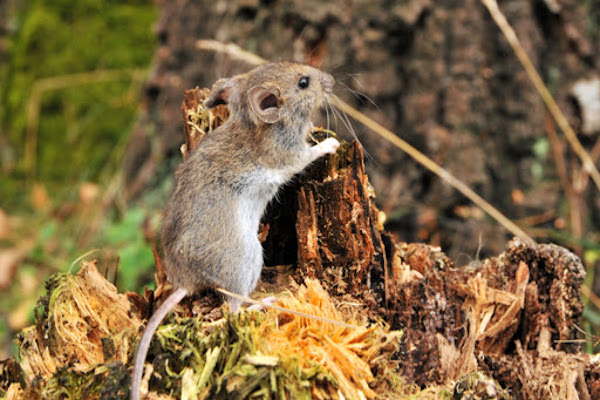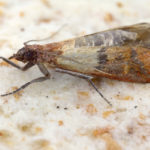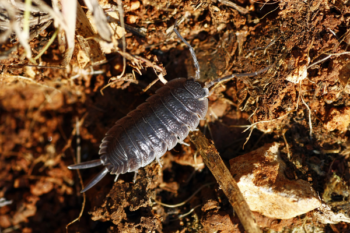
Fall is prime pest season. All kinds of pests know winter is coming, and they’re scrambling to sneak into a warm place. Basements are a pest’s favorite hiding place. They’re dark, damp, temperature-controlled, and secluded. You’ll deal with more pests in fall than you do during other seasons. You’ll find more pests in your basement than you will in the rest of your home. You… probably see where this is going.
It’s unavoidable: all kinds of pests are going to try to get into your basement this fall. They’ll sneak, squeeze, and scramble in from any tiny opening they get as if their lives depend on it. Just because you can’t stop them from trying doesn’t mean you have to let them succeed, however. If you take action now, even the most audacious autumn pests won’t be able to bug you this fall. Here’s what you’re up against, and how to come out on top.
Silverfish
Silverfish are small, wingless insects with silver-grey, segmented bodies and bristled tails. They require highly humid environments to survive, so they’re a common basement-dweller all year long. During fall, they’re particularly attracted to your basement as a source of warmth. Silverfish prefer environments that are 70 to 80℉. They feed on starchy materials like wood, paper, glue, and linen. The silverfish in your basement probably huddle beneath a food source in a particularly damp, warm area.
If silverfish can’t access moisture, they’ll dry out and die. Try to figure out where the high humidity in your basement comes from. Look for drafts coming from windows, door frames, hatches, or vents. Make sure your sump pump works properly and doesn’t leak. While you’re at it, look for plumbing leaks and other sources of stray humidity, too. Controlling humidity won’t just help with silverfish; it’ll help repeal all kinds of other pests, too. Pests like…
Roaches
Like silverfish, roaches are very attracted to humidity. They’ll often seek out kitchens, bathrooms, or basements in order to access the moisture they need to survive. The most problematic roach in Michigan–the German cockroach–also highly prefers warm temperatures. Like rodents (we’ll get to them), they’re very good at following the warmth back to its source. Once inside, roaches tend to hide near food sources during the day and come out to forage at night.
Unlike silverfish, roaches don’t stick to one area in your basement. Instead, they’ll migrate throughout your home. Since they’ll go anywhere, you’ll have to check everywhere. Look for plumbing leaks under sinks, against basement walls, and near utility lines. Roaches love hiding near leaks and food, so depriving them of cover helps, too. Elevate boxes and other storage materials and keep them in dedicated, organized spaces. The clearer and cleaner the floor, the fewer places roaches will have to hide.
Spiders
Michigan’s many spider species have similar habits: they follow the food. The best way for spiders to feed in fall is by following their prey into overwintering locations. Whether you have orb-weaving or hunting spiders, chances are they’re in your home chasing prey. Michigan’s spiders can’t survive winter without taking drastic steps, so infiltrating your home kills two birds with one stone. Spiders are highly proficient climbers, so they can find access points from any angle or elevation.
Spiders generally build their nests near bug “highways” in your home, where they’re most likely to catch prey. In fact, by tracking down webs you can track down these “bug highways” and do something about them. Look for access points such as small cracks and crevices near the cobwebs in your home. Patching these gaps denies pests a way in and spiders a food source at the same time. Keeping your basement clean and cobweb-free will help disrupt spider hunting, too.

Rodents
Rats and mice are the fall pest to watch for. Rodents are extremely attuned to changes in temperature and air pressure. As soon as they feel summer temperatures changing, they start preparing for winter. They have to: rodents and mice need to spend winter in warm places in order to survive. As such, rats and mice spend pretty much all fall looking for ways into warm structures. Unfortunately, they’re… very good at it.
Rodents can actually track warm drafts or food smells around a home’s perimeter until they find small openings. Rodents primarily find openings near utility lines, window and door frames, and vents. Check around these areas and seal them off with caulk or steel wool as necessary. Replace old weatherstripping and worn vent covers. Finally, vacuum, mop, and sweep your home diligently all fall and winter. It’s difficult to keep rodents from smelling your food, but you can keep them from getting it.
Even in the midst of pest season, it’s important to remember: keeping your basement pest-free is never impossible. It might seem like there’s “always another way in,” but there’s not. If you keep following pest control tips like these, you can make your basement a pest-free zone.
If you ever need help removing your current pests or keeping future ones out, give Griffin a call. We’ll help make sure you can enjoy your fall to the fullest–without worrying about pests in your basement.






